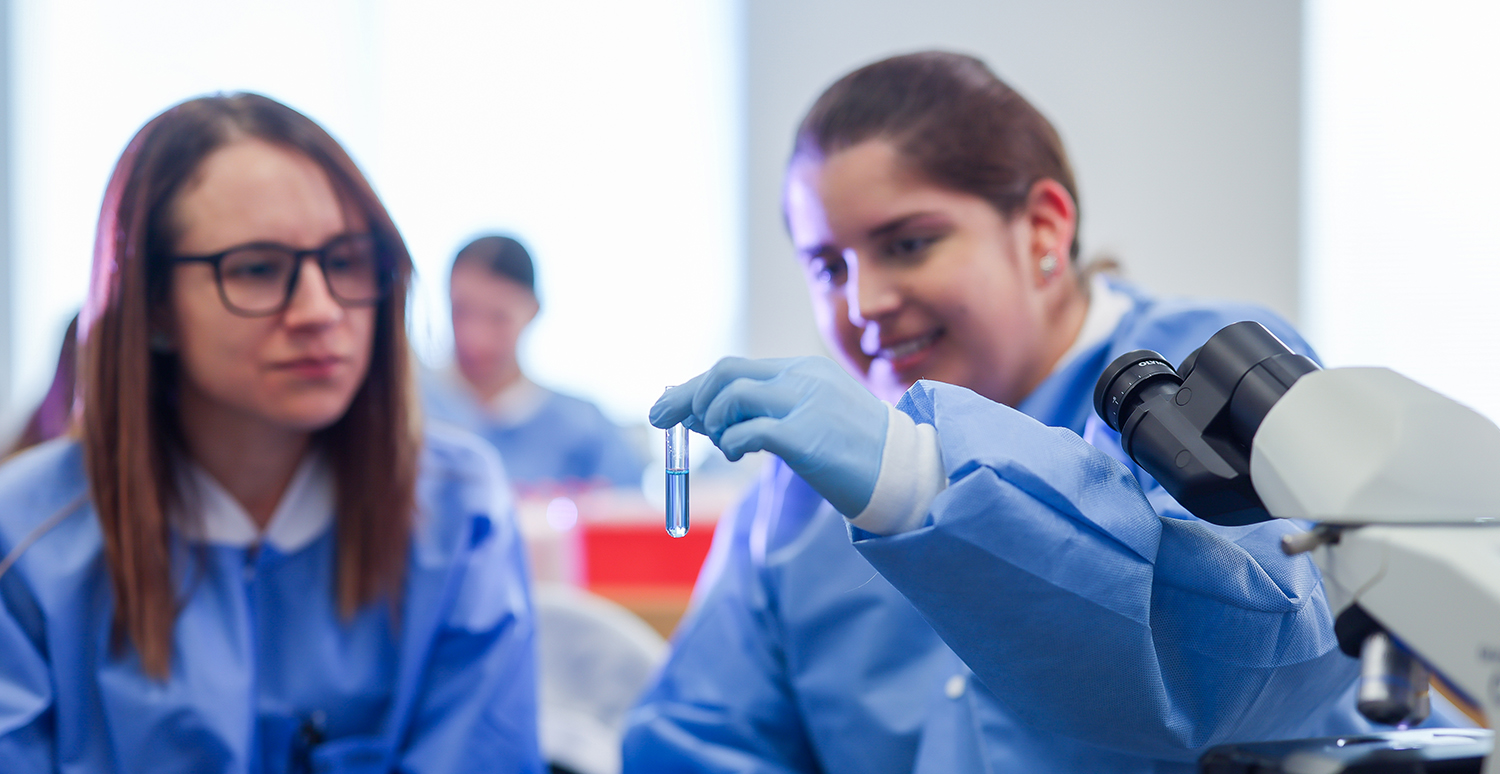Program FAQ's
Clinical I begin in the Fall semester of your second year. Students complete 24 hours per week (8-hour days on Tuesday, Thursday, and Friday).
Clinical II takes place in the Spring semester of your second year and requires 32 hours per week (8-hour days Monday through Thursday).
Your assigned clinical site will depend on your location and the availability of partnering
facilities willing to host a student during that semester.
The first semester is lighter, with only one class meeting on Mondays and Wednesdays. Subsequent semesters increase in course load and typically run Monday through Friday, with the exception of Fridays during the summer term.
Working while enrolled in the program can be challenging; however, many of our students successfully maintain employment throughout the program to support themselves.
Upon successful completion of the program, graduates are eligible to sit for national certification exams through either the American Society for Clinical Pathology (ASCP) or the American Medical Technologists (AMT). All necessary information and guidance will be provided prior to graduation.
Absolutely! The MLT program faculty are happy to answer your questions through email, face-to-face or video call. Please start the conversation by emailing: MLT@wc.edu and they will get in touch with you.
Career FAQ's
An MLT (Medical Laboratory Technician) typically holds an associate degree, while a Medical Laboratory Scientist (MLS) holds a bachelor’s degree and often takes on more advanced testing, analysis, and supervisory roles. Many MLTs later bridge to MLS programs.
The demand for MLTs is growing rapidly due to an aging population and advances in laboratory testing. According to the U.S. Bureau of Labor Statistics, employment for clinical laboratory professionals is projected to grow faster than average over the next decade. +5% job growth rate, higher than average market growth for jobs.
- Completing a bachelor’s degree to become an MLS
- Specializing in areas like microbiology, hematology, or molecular diagnostics
- Moving into supervisory, education, or management roles
- Detail-oriented and accurate
- Comfortable using computers and laboratory instruments
- Skilled in critical thinking and problem-solving
- Team-oriented and ethical
- Those that prefer when no day is the same
